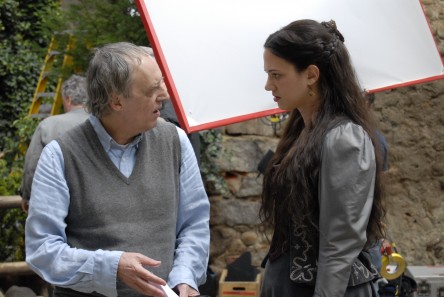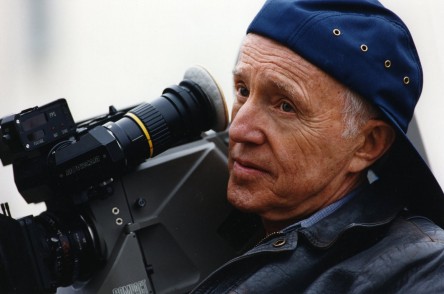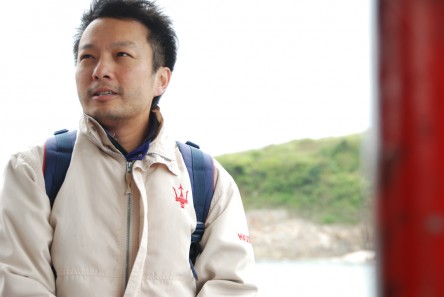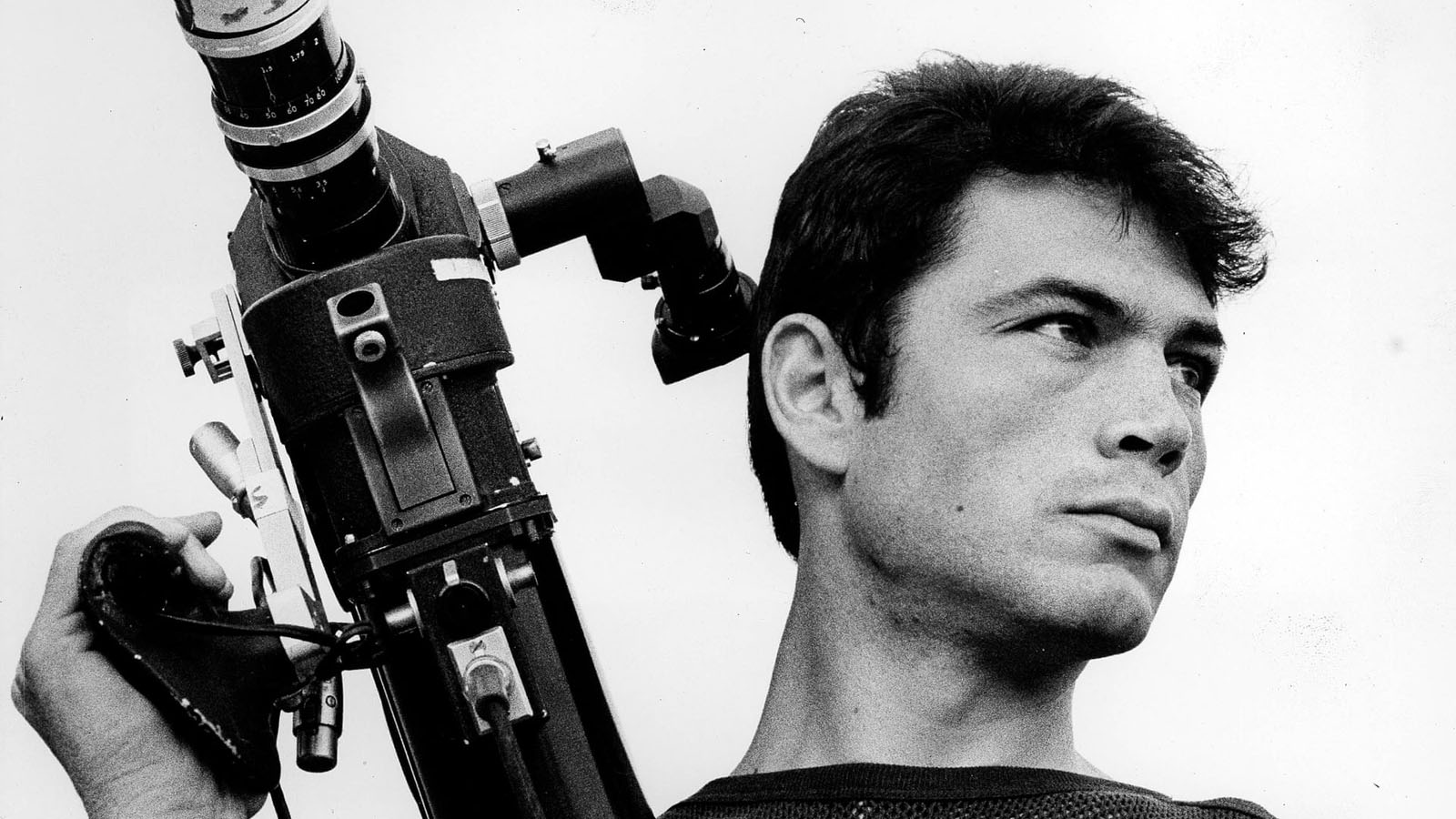The 49th Chicago International Film Festival heads into its final week with a lineup that includes a number of high-profile Hollywood movies as well as some notable independent and international offerings. Winding through two weekends and 14 days, this year’s event saw 180 pictures from the world over—and shows no signs of slowing down with a full schedule through this Thursday.
The weekend saw a number of terrific events and guests, including Saturday’s stop-over by famed Italian horror director Dario Argento, making his first trip to Chicago in nearly two decades to bring his latest fright, Dracula 3D, to the festival’s late night program. A Hammer-inspired take on Bram Stoker’s classic, very much in the Christopher Lee baroque tradition, the picture stars Thomas Kretschmann and daughter Asia Argento (both of Argento’s The Stendhal Syndrome) as the undead count and a voluptuous Lucy Harker. Featuring lovely 3D and a health dose of camp, Argento told me, “I wanted to return to the romance of the story,” all there in the handsome digital photography by Suspiria DP Luciano Tovoli. Argento, unlike many peers, isn’t afraid of embracing current technologies given the near elimination of 35mm, the staple of his classics Suspiria, Phenomena and Deep Red. Of the digital evolution, Argento shared, “It’s great, but it doesn’t register red the same as film. The blood looks different.”
And that’s important in the world of Argento, who along with Mario Bava and a host of Italian horror pioneers, created the giallo genre in the 60s and 70s, hyperviolent and operatic horror pictures featuring beautiful women in danger, labyrinthine investigations, menacing musical scores and—what else—an abundance of psycho killers. Seventy-three-year-old Argento shows no signs of slowing down on the giallo front, offering, “It’s inside me. It is my signature. Why change now?” When asked about why women are so often the objects of his nightmares, Argento explained, “My mother was a fashion photographer. Growing up, I always saw the most beautiful women in photographs, lit and framed beautifully. That stuck with me.” And Argento has given us a number of photogenic women in peril, including Jessica Harper (Suspiria), Jennifer Connelly (Phenomena), Irene Miracle (Inferno) and daughter Asia, whom he loves working with due to her “energy.”
 Famed, two-time Oscar winning cinematographer and director Haskell Wexler (One Flew Over the Cuckoo’s Nest, Who’s Afraid of Virginia Woolf, Bound for Glory, Coming Home) stopped by the festival on Saturday to present his landmark 1969 political drama Medium Cool, the best film ever made about the sociology of Chicago, and one of the best about the ethics of journalism. But it’s about so much more than that, including its now-famous documentary-style footage of the 1968 Chicago Democratic Convention riots, which strategically figure into an ingenious narrative woven through the actual protests, police beat-downs and tear gas emissions. Robert Forster is a local cameraman for the evening news who finds himself drawn to an Uptown, Appalachian single mother, played to perfection by Verna Bloom. Wexler, a Chicago native (“When I’m here, I feel I am home”), was on-hand for a post-film Q&A, as well as to discuss Medium Cool Revisited, a short documentary juxtaposing his classic with the recent NATO protests.
Famed, two-time Oscar winning cinematographer and director Haskell Wexler (One Flew Over the Cuckoo’s Nest, Who’s Afraid of Virginia Woolf, Bound for Glory, Coming Home) stopped by the festival on Saturday to present his landmark 1969 political drama Medium Cool, the best film ever made about the sociology of Chicago, and one of the best about the ethics of journalism. But it’s about so much more than that, including its now-famous documentary-style footage of the 1968 Chicago Democratic Convention riots, which strategically figure into an ingenious narrative woven through the actual protests, police beat-downs and tear gas emissions. Robert Forster is a local cameraman for the evening news who finds himself drawn to an Uptown, Appalachian single mother, played to perfection by Verna Bloom. Wexler, a Chicago native (“When I’m here, I feel I am home”), was on-hand for a post-film Q&A, as well as to discuss Medium Cool Revisited, a short documentary juxtaposing his classic with the recent NATO protests.
I caught up with the eighty-eight-year-old maverick for a discussion on Medium Cool and its vivid view of the underclasses. “Studs Terkel introduced me to Uptown and the Appalachians,” he explained, adding, “In feature films, you never see certain people. In Medium Cool, you see little kids with bloated bellies. In most movies, you never see the slums as they really are.” He’s referring to the compassionate and expansive view of the disenfranchised neighborhood populations taken in his picture, of a political ilk nearly extinct today. According to Wexler, “The word ‘politics’ is a way of understanding our culture. It automatically goes to Republican or Democrat, and not into the idea of what is good for people and what is sensible. It’s about which team is the winning team.” Of course, given Wexler’s famous canon of work, it was hard not to lament the changing of the Hollywood guard and modern decline in quality. “What gets made now is about whether it will make money. Occasionally some that make money are good too. In my lifetime, I’ve made quite a few. I made a film called Matewan with John Sayles. Coming Home also.” And many, many more.
 Monday will see the arrival of the controversial and internationally-known Chinese director Scud (nee Danny Cheng Wan-Cheung), the button-pushing provocateur whose taboo-breaking films have been censored in Hong Kong and Taiwan, also bringing the world premiere of his fifth picture, Voyage, to the festival on Tuesday, October 22 at 8:30pm. The festival will pay tribute to the filmmaker at the Q Film Hugo Film Awards at The Center on Halsted, Monday evening at 6 p.m., featuring appearances and remarks from actors who have worked with the filmmaker, including Haze Leung (Love Actually…Sucks!), Byron Pang (Amphetamine) and Vietnamese supermodel Chan Than San.
Monday will see the arrival of the controversial and internationally-known Chinese director Scud (nee Danny Cheng Wan-Cheung), the button-pushing provocateur whose taboo-breaking films have been censored in Hong Kong and Taiwan, also bringing the world premiere of his fifth picture, Voyage, to the festival on Tuesday, October 22 at 8:30pm. The festival will pay tribute to the filmmaker at the Q Film Hugo Film Awards at The Center on Halsted, Monday evening at 6 p.m., featuring appearances and remarks from actors who have worked with the filmmaker, including Haze Leung (Love Actually…Sucks!), Byron Pang (Amphetamine) and Vietnamese supermodel Chan Than San.
 More to come in the next ChicagoFilm CIFF update: Inside Llewyn Davis, The Book Thief, Purgatorio and more.
More to come in the next ChicagoFilm CIFF update: Inside Llewyn Davis, The Book Thief, Purgatorio and more.
For more information, tickets and showtimes, please visit chicagofilmfestival.com.



